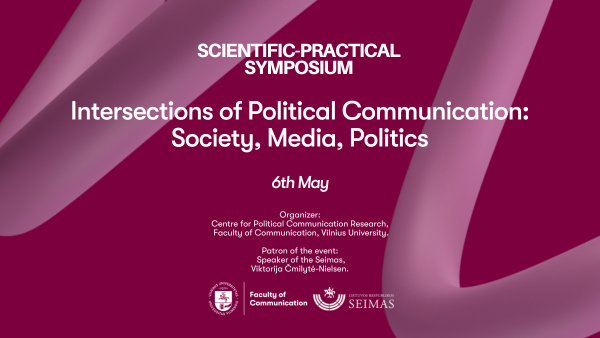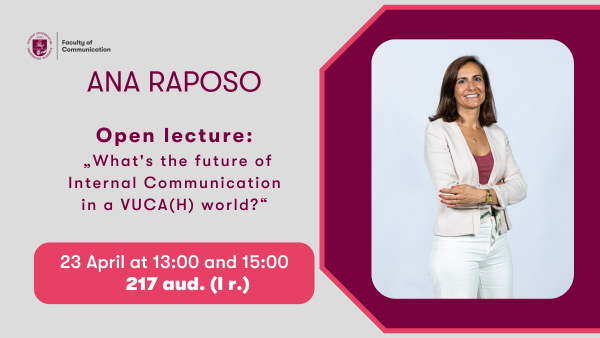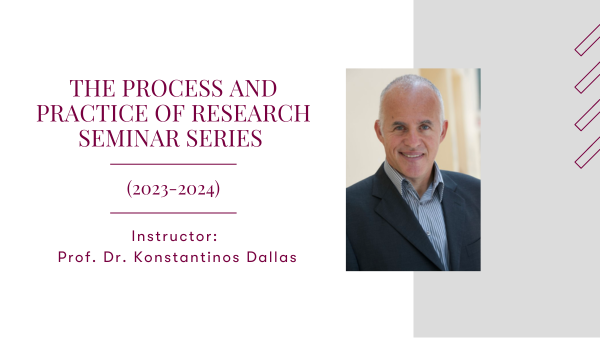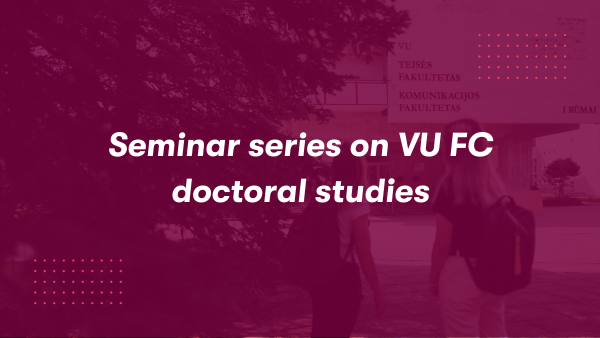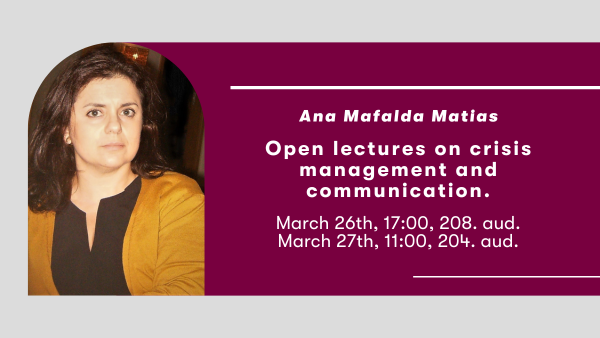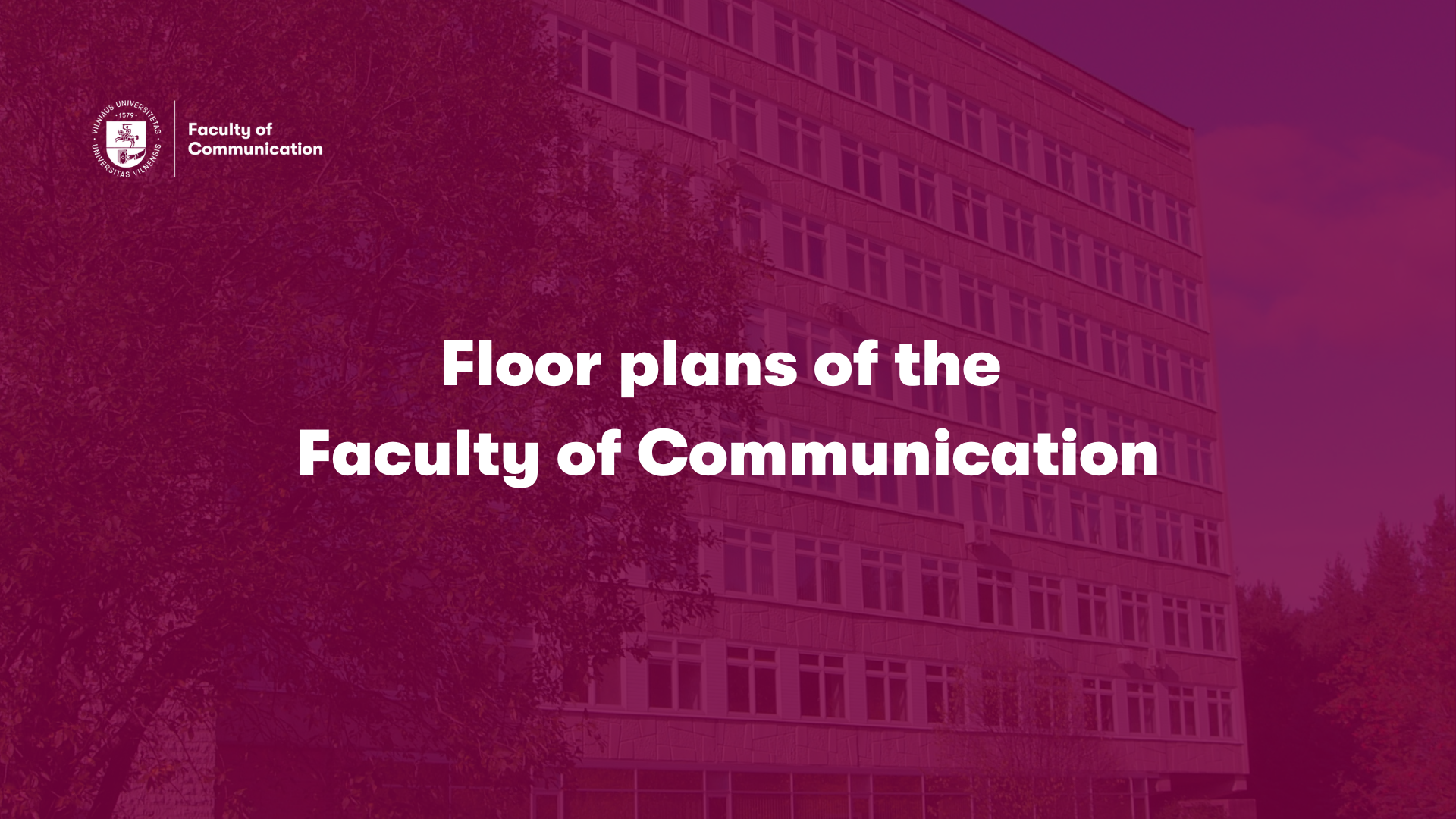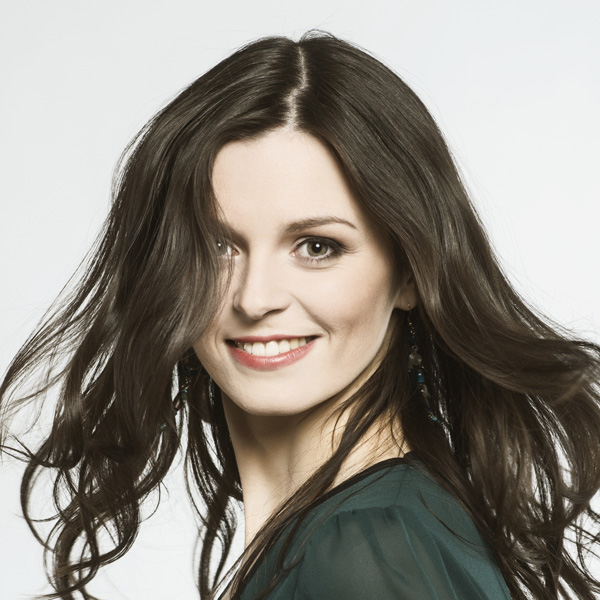Radio presenter, journalist at LRT television / Analytical Journalism
When did you decide to study journalism: was it a childhood dream, or did you decide later?
Today, I think that studying journalism was the most natural path after graduating from the Lithuanian Academy of Music and Theatre with a degree in piano performance arts.
As a child, I dreamt of being a pianist, and the inspiration probably came from listening to my neighbour play and attending the classical music concerts that my parents took me to. In kindergarten, I remember not being able to take my eyes off the music teacher's fingers on the piano keyboard. So I asked my mother to enrol me in music school. Then my parents had to buy a piano and take it up to the eighth floor. And when I graduated from the Lyra School of Music at the age of seven, I knew that music was in my blood, and that it would be unpleasant to live without it. So I decided to continue my musical career at the National M. K. Čiurlionis School of Arts. After that, I started my bachelor studies at the LAMT. What does that have to do with journalism, it seems?
From an early age, many things were interesting to me, and I tried to absorb as much information as possible. The turning point came during my bachelor's studies, when I realised: I would be lying to myself if I said that I could fully realise myself by playing the piano. The life of a pianist is not for me. So in the last year of my bachelor's studies, I began to wonder: what next?
I knew that I wanted to stay in the field of culture, to analyse its phenomena, to share it with others. It was during this reflection that I noticed a new Master's degree programme at Vilnius University - Analytical Journalism. There were two areas of focus: politics and economics or culture and art. It's easy to guess what became my goal then. And even though I was afraid that it would be very difficult to enrol and study at a completely different university, I am glad that I decided to give it a try without thinking too long.
Do you have any memorable memories from your university days?
First of all, I would mention the personalities I was lucky enough to meet. I'm talking about some very special lecturers who encouraged me to take an interest, to go deeper and to find out more. We love to talk to them when we meet them at events or when we just pass them on the street. There have been some hilarious incidents: from missing an exam for the first time in our lives, to a lecture that dragged on and on, where we were locked in a building and crawled home through the window ;)
What was your first job and what was your first job after graduating in journalism?
My VERY first job was in music: as a child, my sister, cousin and I used to stop wedding cars in the summers to get candy. I had to sing while my sister and cousin gathered the candy. And all the work that followed was related to my studies and the activities I love: I was a piano teacher, I wrote for several music publications, and I was also a painter.
When I started studying journalism, while I was still doing my summer internship at LRT.lt portal, I was offered to try my hand at "LRT Klasika" radio and "Visu garsu" programme of "LRT Kultura" (now - "LRT Plius") channel. Since then, things have picked up a lot of momentum: I was invited to host the National Eurovision Song Contest, the project "Singing Lithuania", and more programmes on "LRT Klasika" and "LRT Radio". So, after my journalism studies, or rather before they ended, I started working for LRT.
Did the Faculty of Communication and your studies influence your personality? And did the knowledge and skills from the university come in handy at work?
Probably, every day's challenges, the people we meet and the issues we face shape us in one way or another. When it comes to studying, there is no doubt that everything we are able to observe and apply in our work is useful: both positive and negative. And knowledge is always useful, which is why the knowledge I gained at university, both in journalism and in cultural and artistic disciplines, was and still is useful in my daily work.
Tell us about your working day.
It is quite difficult to describe a working day - every day is different from the next. I work in both radio and television, and I prepare a lot of programmes, so every day from early in the morning I first read the news from the cultural world, then either I start to coordinate topics and find interviewees, or I start to record interviews and edit. Often I go to the interviewees myself, which is more convenient for them and for me, because I don't have to wait for the interviewees to find the time and postpone important conversations for the future.
I also have to listen to a lot of different music during the working day, which I use for shows or playlists. I sometimes joke: if other people listen to music in their free time, I can listen to it every day at work. Of course, that listening is quite different, and there is also the professional hearing of the interpretation and the criteria for selecting the music for one show or another.
Depending on the day of the week, I am preparing for radio or TV airplay. In fact, there is not a day in the week that goes by without live airplay. So when it's a radio programme, I work on the sound recordings, the music, and I go to the radio studio, sit at the microphone and dive into the programme. When I'm preparing for a TV broadcast, I'm researching topics, editing texts, reading about the interviewer, preparing questions. Then, of course, I go to the dressing room, get dressed and go to the studio. Sometimes the radio airwaves are replaced by the television airwaves. I would compare working live to a concert, of which I have played many: you have to be here and now, concentrate as much as possible, but it is also important to be open to the possibility of improvisation. I like this dynamic of work very much.
What advice would you give to current journalism students, based on your own experience?
I don't really like to give advice. Maybe I would say: listen to your inner voice first and don't be afraid to try yourself in activities that attract and interest you. I would also say not to underestimate the knowledge that may not seem relevant at the moment - it will still come in handy one day. I would also like to follow the work of my colleagues and not be afraid to ask their advice, learning from experienced wolves is beneficial: even if their advice seems too complicated, it is worth challenging yourself. I also wish you to keep checking the information, even when it seems that you have checked everything really carefully. And finally, I wish you not to be discouraged if things go wrong. You have probably heard the phrase: "There is nothing wrong with going on air" - it is human to make mistakes, but the most important thing is that mistakes help you improve.

